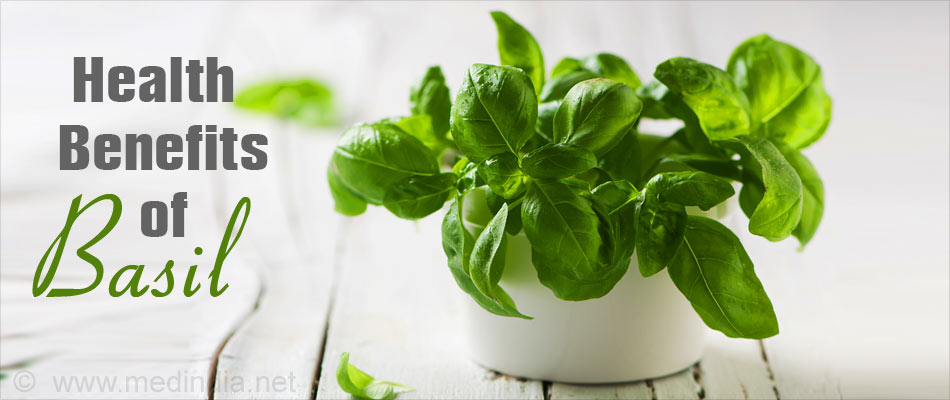How to treat Inflammation and swelling using Basil?
Basil
What is Basil and its use?

Basil, also called sweet basil, is a natural herb of the mint family called Lamiaceae. It is a flavorful and green leafy herb that generally originates in Africa and Asia. There are four basic varieties of Basil found in the nature namely:
- sweet basils
- small-leaved/dwarf basils
- purple-leaved basil
- basils with specially scented leaves
Out of all varieties of basil, sweet basil is the most commonly used.This type has dark green and glossy leaves which has a sweet as well as mild spicy flavor. Sweet basil has a scientific name ‘Ocimum basilicum’ that plays several important roles in a number of mediterranean and italian cuisines. A number of Thjia, Vietnamese, and Indonesian cuisines also use Basil for extra featured dishes.
Apart from cuisine features, basil is also known for a number of medical applications in the human body. The part of the plant that grows above the soil level is used for several medical conditions such as loss of appetite, Diarrhea, constipation, spasm, gastrointestinal, kidney disorders, blood circulation, etc.
Benefits of Basil in a human body

Apart from been a featured spice and souvenir for several continental and traditional dishes, this natural herb consist of several vital minerals and vitamins such as:
- calcium
- vitamin A
- chlorophyll
- zinc
- iron
- Vitamin C
When added into the daily diet, Basil provides a number of beneficial effects inside the human body that includes:
- reduces inflammation and swelling
- helps to reduce oxidative stress
- may help in preventing certain cancers
- reduces high blood sugar level
- improves mental health
- fights against infections
- helps to treat wounds
- helps type 2 Diabetes and rheumatoid arthritis.
- supports cardiovascular health
- prevents skin aging
- assist the lover health
- increases antioxidant health
- protects stomach from disorders
Basil dose for humans

Basil is basically a fragrant herb with different flavors that is appreciated by a wide range of people. It is a kind of natural herb whose intake directly depends upon the consumer’s age, medical situations, and several other conditions. Scientifically, natural products do not generally occur with appropriate amounts of doses. However, make sure to consult a health professional regarding intake of basil before its administration. There are several ways through which vbasil can be added and consume in the diet such as:
- chopped fresh basil could be sprinkled over a wrap or pizza.
- wholoe, torn, or chopped basil could be added in the salad
- some basil could be added in slices of tomato and mozzarella by spraying the dish with olive oil.
- add basil in soup, stir fries, and tomato sauce to improve taste and benefits.
- A marinade can also be made by adding olive oil, chopped garlic, and basil.
It is advisable to consult a doctor to determine the appropriate amount of basil intake that will be beneficial for an individual.
OVERVIEW
- Basil is a natural herb that is used in a number of worldwide dishes as well as in a number of medical applications.
- It consists of several important minerals and vitamins that provide a number of beneficial health effects in the body.
- Due to inappropriate data of basil intake, the dosing of basil is ideally based on an individual’s age, medical conditions, and several other factors.
REFERENCES:
- https://www.medicalnewstoday.com/articles/266425
- https://www.medindia.net/patients/lifestyleandwellness/top-7-health-benefits-of-basil.htm
- verywellhealth.com/holy-basil-4766587
- https://www.webmd.com/vitamins/ai/ingredientmono-303/basil
- https://www.britannica.com/plant/basil
- https://www.healthline.com/nutrition/basil#nutrition
- https://www.rxlist.com/basil/supplements.htm
- https://www.tasteofhome.com/collection/types-of-basil/#:~:text=Sweet%20basil%20is%20the%20most,sweet%20but%20slightly%20spicy%20flavor.
For more information, kindly visit below.